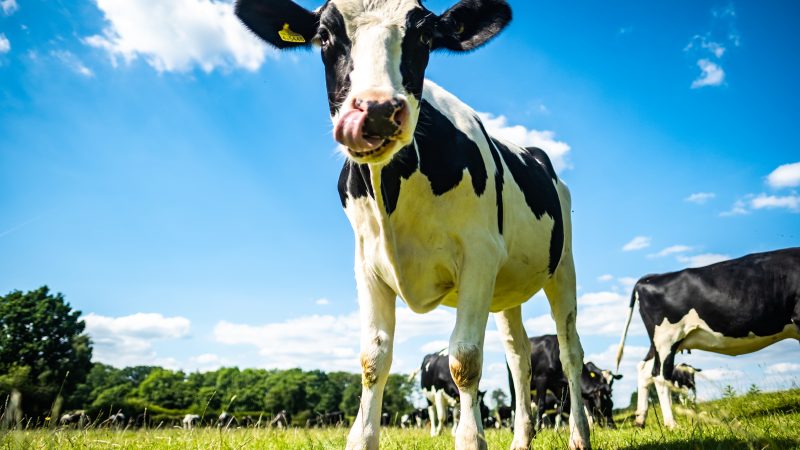
The draft National Policy Forum documents published by LabourList in May contained a pledge by the party to “ensure animals are treated with respect”. Yet the only policies it mentioned that might contribute to that objective were closing loopholes in the fox hunting ban and outlawing trophy hunting. In other words, the focus was entirely on wild animals, and neglected the disrespect with which the 155 million creatures in factory farms are treated every day: squeezed together, suffering from burns, amputations and respiratory problems.
It is easy to see why. The single bullet point on animal welfare came in a section that emphasised support for UK farming, and the party is reluctant to confront such a politically influential and emotionally resonant industry. Politicians are also understandably unwilling to be seen to be telling people what they can and cannot eat. Efforts to have a serious conversation about the harm associated with the meat industry – to animals, to the environment and to human health – have tended to be shot down before they get off the ground.
The government is ignoring its own research on meat consumption
The National Food Strategy recommended setting a target of reducing meat consumption by 30% over the next decade, which has been pointedly ignored by the government that commissioned it. Meanwhile, Boris Johnson, Liz Truss and Michael Gove are among the senior Conservative figures that have lined up to reject the idea of a meat tax, despite no serious proposal for one being raised. While Labour has at least avoided trying to stoke a culture war, its silence on the issue is hardly to its credit – though perhaps Monday’s change of shadow farming secretary might prompt a new approach.
Research we’ve published at the Social Market Foundation suggests that policymakers are being altogether too cautious in trying to tiptoe around the issue of meat consumption. While many assume that the topic must be contentious, we find that there is widespread consensus that there is a problem that needs addressing.
57% of people think we are eating too much meat
We found that 57% of people agree that we eat too much meat as a society, while only 16% disagree. A similar number (58%) say that they have taken steps to reduce their own personal meat consumption. All in all, we estimate over 80% of the British public are ‘persuadable’ to action on meat. As with net zero, there is a risk that politicians fail to appreciate and harness public appetite for action on meat that runs ahead of Westminster.
Yet individual good intentions can only take us so far. While some sources suggest overall meat consumption has fallen, production of chicken – typically the lowest welfare meat – has risen by a quarter in the past decade. Political leadership and supportive policy is needed to help people translate their concern into effective action.
Public opinion would support action from Labour
Recent Conservative U-turns have opened a political space that a Labour Party that really cared about farm animals could fill. There is no shortage of policies they could pursue to do so. In July, the government confirmed that it will not be pursuing plans to require animal welfare labels – as currently exist on eggs – to chicken and pork products, despite officials conceding that “there is public appetite for improved welfare labelling”. That fits with our findings – in our survey, 74% of people said they would support government mandated welfare labels.
In May, the government dropped the kept animals bill, which would have ended practices like exporting live animals for fattening and slaughter – despite Labour efforts to revive it with an opposition day option. That flies in the face of widespread desire to raise standards on farms – 91% of people in our survey were in favour of stricter regulation. Invariably, in the focus groups we held on the topic, there would come a time when somebody would ask why we tolerate such practices at all. We found that 59% would like a ban on all factory farming.
Voters are ready to listen to bold solutions
Such attitudes are remarkable in the midst of a cost of living crisis. Most people we spoke to said they would be willing to pay more to know that the animals they eat are treated humanely. Since the UK banned the use of battery cages for hens in 2012, there has hardly been a clamour for the return of super cheap eggs. The public may not appreciate just how widespread lower welfare standards are – we estimate two-thirds of farmed animals are factory farmed – and so how big the impact on affordability would be. Yet it is clear that the status quo is unsatisfactory too.
Increasingly, people are using plant-based alternative proteins to reduce their consumption of animal products. Yet they need to be tastier and more affordable than they have managed so far to displace conventional meat. A Labour government could help that process by investing in public research and development (potentially as part of its climate investments), speeding up approvals processes and subsidising alternatives (either directly or by eliminating VAT on them).
It will take more than a bold declaration in the next manifesto to ensure all animals in the UK are treated with respect. To achieve that goal, we need to start talking about the animals on our plates. That is not an easy conversation to have – but voters are ready to listen.




More from LabourList
‘Labour council candidates – it’s tough, but all is not lost’
‘Labour won’t stop the far right by changing leaders — only by proving what the left can deliver’
‘Cutting Welsh university funding would be economic vandalism, not reform’